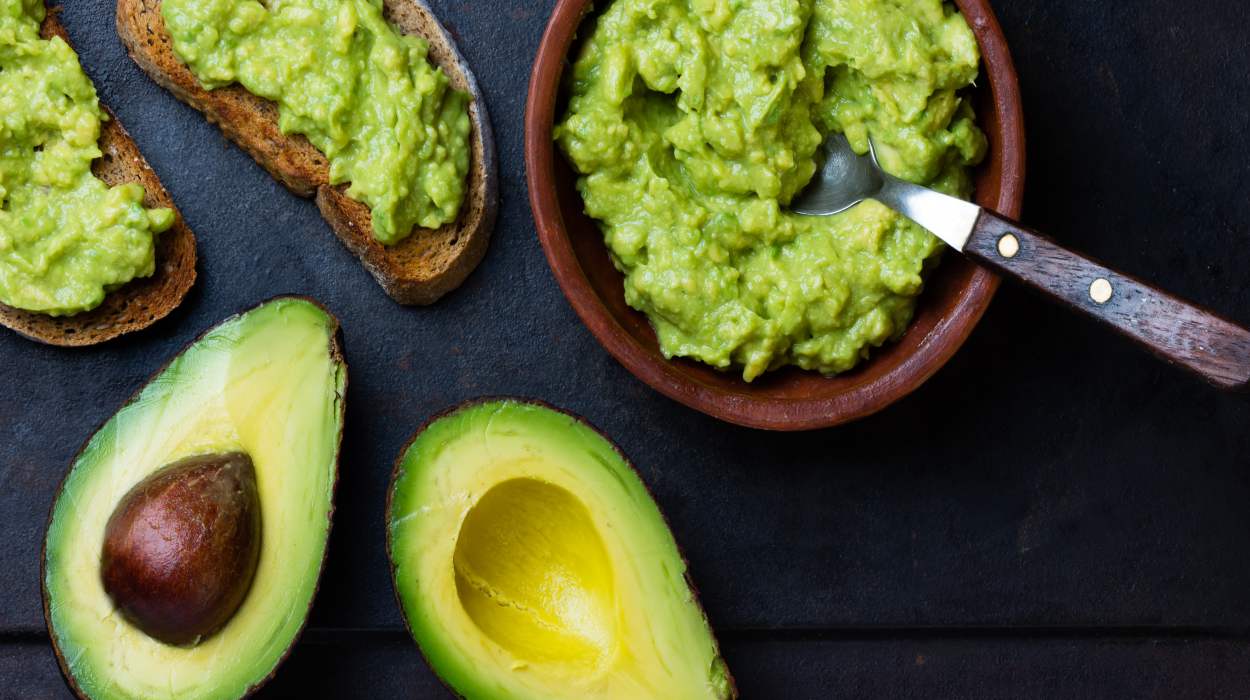 Expert's opinion
Expert's opinion
Expert's opinion
The article is a subjective view on this topic written by writers specializing in medical writing.
It may reflect on a personal journey surrounding struggles with an illness or medical condition, involve product comparisons, diet considerations, or other health-related opinions.
Although the view is entirely that of the writer, it is based on academic experiences and scientific research they have conducted; it is fact-checked by a team of degreed medical experts, and validated by sources attached to the article.
The numbers in parenthesis (1,2,3) will take you to clickable links to related scientific papers.
Types Of Keto Diet 2024: How They Work? Which Is Best For You?

Many people consider a keto diet to control their body weight. First used to treat epilepsy (seizures), a ketogenic (keto, or standard ketogenic diet) limits carbohydrates (“carbs”) and increases fats and proteins in one’s diet. Normally, when we eat carbohydrates, including simple sugars and things like rice, bread, and pasta, they turn into glucose[1], which then provides energy to cells in our body.
In a ketogenic diet, the body always tries first to get energy from the glucose but does not find any. Instead, it derives energy from ketone bodies, made in the liver from fat, in a process called ketosis. The fat in a ketogenic diet includes foods high in saturated fats and protein, such as beef and pork. You can also eat unsaturated fats, such as certain nuts and seeds and extra virgin olive oil. For those on a vegan diet, keto can also be modified to accommodate this dietary preference.
While on keto, you will need to limit most fruits because they’re high in carbs, which are digested into sugar. Green and yellow vegetables have fewer carbs and are allowed in reasonable quantities. Ketogenic diets include keto-only plans, the cyclical ketogenic diet, and the targeted ketogenic diet where you periodically eat more carbs. In this article, we will discuss several keto and other low-carb diets and help you understand their risks and benefits. Read on to learn more.
5 Types Of Keto Diets & A Word About Safety
- Standard Ketogenic Diet
- Cyclical Ketogenic Diet
- Targeted Ketogenic Diet
- Vegan Keto Diet
- Dirty And Lazy Keto Vs. Clean Keto
Besides the traditional keto diet, we will discuss other types of keto diets including the cyclical keto diet and the targeted keto diet. Generally, ketogenic diets have a high saturated fat content. Therefore, you should monitor your cholesterol level and limit saturated fats to seven percent of your daily intake. Also, keto fans should see a physician regularly to monitor their health status.
Popular Types Of Keto Diet

Many people want a healthy weight and a good appearance. This is achieved by the basic relationship between energy spent by exercise and normal body functions and consumed from caloric intake. Fat provides nine calories per gram while carbohydrates and protein provide four calories per gram. Thus, if we consume more calories than we use energy we gain weight.
With a normal diet, the drop in insulin, a hormone in your body that lets you use food for energy and adjusts your blood glucose levels, makes you feel hungry after eating, whereas with a standard keto diet, this does not occur, so you feel full after eating.
Standard Ketogenic Diet (SKD)
With SKD, you limit your carbohydrates enough to put your body fat into ketosis on a regular basis. As you go into ketosis, you may feel a little irritable and uncomfortable (brain fog, insomnia, nausea, bloating). It takes determination because if you do not strictly follow the diet and go out of ketosis, you will not see the benefits.
Cyclical Ketogenic Diet (CKD)
If you follow a CKD, you eat more carbs just before exercise. A study[2] showed that in young male athletes doing resistance and aerobic training, CKD provided similar weight reduction compared to a standard calorie-limited diet. Users will have to be aware that on their carb days, they will not be in ketosis and that it will not return immediately when they return to the strict keto regimen.
Targeted Ketogenic Diet (TKD)
With TKD, users consume all of their allocated carbohydrates before a workout, thus the term targeted ketogenic diet. This is called backloading your glucose. Remember, like with CKD, you will experience discomfort as you move in and out of ketosis.
Vegan Keto Diet (VKD)
While the protein in a standard keto diet mainly comes from meat sources, vegans can rely on plant-based proteins instead Some healthy examples, which should provide healthy proteins and fats, include:
- Flaxseed
- Hemp seed
- Walnuts
- Avocados
- Almonds
- Sunflower seeds
- Cashews
A vegan moderate-carb keto diet can include kale, broccoli, tofu, and other soybean-based products. Some people also try a non-keto, low-carbohydrate diet. You do not go into ketosis as energy still comes from glucose, but you avoid bread, potatoes, cereals, and rice while enjoying more vegetables, meat, fish, eggs, and nuts. Lower carbs usually mean lower calories, so you can still lose weight.

Dirty And Lazy Keto Vs. Clean Keto
To describe the quality of food in a keto diet, they can be “dirty and lazy” or “clean”. Dirty keto follows all the keto guidelines without regard to the quality of the food. Processed or “junk” foods are allowed. With lazy keto, the individual tracks their carb intake to stay within keto guidelines but does not worry much about how much fat or proteins they consume.
On a clean keto diet, people follow keto guidelines and pay considerable attention to the quality of their food. They avoid highly processed foods such as snack foods and lunch meats. Preferred foods in this category include:
- Eggs
- Fish
- Full-fat dairy foods
- Healthy oils such as olive and avocado oils
- Lean meats and poultry
- Small portions of fruits such as berries
- Non-starchy vegetables
- Nuts and seeds
- Unsweetened beverages
Is Keto Safe?
There are health risks associated with the standard keto diet and other variations, particularly from highly saturated fats. For this reason, you should monitor your cholesterol level[3] and limit saturated fats to about seven percent of your daily intake. Also, keto fans should see a physician regularly to monitor their health status
Benefits Of The Keto Diet
Control Blood Sugar
You may have trouble controlling your blood sugar because it rises after eating. However, on a high-protein ketogenic diet, your body largely avoids this process, so your level should stay normal. This is because when you eat carbohydrates, the pancreas releases insulin, which allows the carbs to move into the body’s cells for energy. Then, as insulin drops, you may feel hungry again. This is what servers mean when they ask if you have “room for dessert.”
Losing Weight Quickly
Having bypassed carbs to get energy, you feel full and do not eat as much, decreasing your total Calories.
Improve Overall Health
You could sometimes reduce your risk[4] of heart disease, diabetes, obesity, and other health problems. Besides decreasing the health risks of obesity, the high-fat level can actually decrease the low-density lipoprotein (“bad cholesterol”) and increase the high-density lipoprotein (“good cholesterol.”).
How Is Keto Different From The Atkins & Mediterranean Diets
The Atkins diet works in phases. The first phase requires you to eat very little carbohydrates. Later on, those who follow this plan are directed to eat a moderate balance of carbohydrates, fats, and protein. The goal is to break poor eating habits and restore a healthy balance.
Similar to the Atkins diet, the Mediterranean diet balances carbohydrates, fats, and proteins. The goal is to maintain a healthy weight and glucose level, reducing the risk of heart disease and diabetes. If the person has Type 2 diabetes, this diet can also help control[5] the condition.
Additionally, there is a Mediterranean Keto Diet, where people eat vegetables, whole grains, fish, olive oil, and small portions of red meat but maintain ketosis as in the standard ketogenic diet. Some studies suggest that this diet may benefit those with Alzheimer’s disease[6].
Before committing to a diet to attain a healthy weight, you must be aware of the risks associated with keto. Higher saturated fat intake is associated with an increased incidence of heart disease because plaque (cholesterol) builds up in the arteries, and a keto diet does tend to increase the low-density lipoprotein (“bad cholesterol”) level. Also, high fat intake may burden your liver because that is where that fat is metabolized.
A keto diet may not supply all the necessary vitamins and nutrients, so supplements should be incorporated. Substances such as selenium, magnesium, phosphorus, and Vitamins B and C might be deficient.
For anyone with kidney disease, the higher ketone level in a keto diet[7] can increase the burden on the kidneys, so anyone with renal problems should see a registered dietician or doctor before considering any new diet. Furthermore, keto diet plans can lack fiber, leading to constipation. Since glucose from carbohydrates fuels the brain, a low-carb diet can cause “brain fog” or mood disturbances such as depression or irritability.
Keto Diet Recipes You Can Follow
Keto-Friendly Yeast Bread
While regular bread contains too many carbs to be keto-friendly, you can buy keto bread at health food shops or make your own using special flour. Keto flour provides the gluten necessary to make bread but limits the carbohydrates. One brand is King Arthur’s Keto Wheat Baking Flour and they provide a recommended baking recipe as well.
Chia Seed
Chia seed[8] provides many benefits and is keto-friendly. They’re high in fiber, omega-3 fatty acids, and other nutrients. This can decrease the risk of heart disease, lower cholesterol, and promote bowel health. Also, the fiber in the chia takes a long time to go through your system, so you will feel full for longer, prompting you to eat less. Also, a high-fiber diet is associated with a lower chance of colon cancer. Here is a recipe for keto-friendly chia pudding.
Where Should You Begin?
If you are considering going on a healthy diet or just changing your eating habits, your first task should be determining your goals. Do you want to control your weight, improve your health, or enhance your performance? It is always a good idea to see a healthcare provider for a physical examination and blood tests to see if you have any nutrient deficiencies or health problems before you go on a diet. Also, since many people have tried unsuccessfully to lose weight, it is good to consider how strict a diet you can realistically follow.
Many people are interested in standard keto, cyclical keto, targeted keto, or other low-carb diets; athletes may be interested in a high-protein keto diet. For a true ketogenic diet, remember that you must maintain a low carb intake to achieve ketosis, where your body gets energy from ketone bodies rather than glucose.
Next, a standard ketogenic diet or a cyclical or targeted keto regimen requires a high degree of discipline. If you don’t follow the plan, you’re not going to stay in ketosis, and not only will you lose the benefits of the diet, but you may also feel uncomfortable as you go in and out of ketosis. Remember, consistency is key.
Be sure to look at your general level of nutrition, ideally by checking your cholesterol, blood sugar, and other nutrient levels[9], including tests such as a complete blood count, urinalysis, vitamin D level, and liver and kidney tests, and consulting a professional dietician or nutritionist.
Do not forget that there are some risks in undertaking a ketogenic diet. Considering the high fat and protein content in a keto diet, your risk of heart disease, liver problems, or kidney problems must be considered. Hopefully, your chosen diet will help you achieve and maintain a healthy weight and good nutrition. For your information, see this link to the best keto apps to help plan your keto journey.
Conclusion
Keto is one of the most popular diet types. Remember, before starting a standard keto diet or another variation of the keto diet, consult your health care professional. Be determined, because you have to follow the diet to remain in ketosis, see weight loss, and obtain the other health benefits. Know the risks and benefits of the diet of your choice, and stay informed and upbeat as you start your keto journey.
Frequently Asked Questions
A ketogenic diet is when your body obtains its energy from ketones, a derivative of fat rather than from carbohydrates as in a normal diet. Normally, your pancreas produces insulin which helps the body process carbohydrates into energy. When you eat carbs, more insulin is released, but then after you finish eating, the insulin level drops, making you feel hungry. A keto diet removes this equation because your insulin and blood sugar levels do not rise after meals. Thus by definition, a ketogenic diet is a very low-carbohydrate diet.
You will need to learn about keto and decrease your carbohydrate intake to a very low level. Instead of using carbohydrates, you will get much of your energy from fat. You might experience some unusual or uncomfortable symptoms as you go into ketosis, sometimes referred to as keto flu. These include an upset stomach, headache, fatigue, and trouble sleeping.
Yes. With a traditional or standard keto diet, you keep your carb intake low at all times. Many people get much of their fat and protein intake from meats. There is also a cyclical ketogenic diet, where people who do strenuous exercise consume extra carbohydrates just before their workouts. This can cause users to get out of ketosis, which is then restored on the non-carbohydrate days. Another variation is the targeted ketogenic diet where users also take carbs before working out, but only a limited amount, similar to a standard keto diet. It is also possible to design a vegan keto diet, where all the fats and proteins are plant-based.
Yes, besides losing weight, a keto diet helps to control blood sugar and in some cases could reduce the risk of heart disease, because the high-fat level in a keto diet can actually decrease the LDL or bad cholesterol. In a case where a keto diet helps the person to avoid or reverse obesity, this will also spare the individual the health problems of being extremely overweight.
Yes, particularly from high cholesterol and too many saturated fats. A keto diet may not be advised for persons with certain medical conditions. Diabetics may need to adjust their medications. People with problems with their pancreas, gallbladder, liver, or thyroid should always see a healthcare provider before going on any new diet.
+ 9 sources
Health Canal avoids using tertiary references. We have strict sourcing guidelines and rely on peer-reviewed studies, academic researches from medical associations and institutions. To ensure the accuracy of articles in Health Canal, you can read more about the editorial process here
- Nakrani, M.N., Wineland, R.H. and Anjum, F. (2022). Physiology, Glucose Metabolism. [online] Nih.gov. Available at: https://www.ncbi.nlm.nih.gov/books/NBK560599/#:~:text=Glucose%20is%20central%20to%20energy,universal%20fuel%20of%20the%20fetus.
- Pavel Kysel, Denisa Haluzikova, Radka Doležalová, Laňková, I., Zdeňka Lacinová, Barbora Judita Kasperova, Jaroslava Trnovska, Viktorie Hrádková, Mraz, M., Vilikus Z and Haluzik, M. (2020). The Influence of Cyclical Ketogenic Reduction Diet vs. Nutritionally Balanced Reduction Diet on Body Composition, Strength, and Endurance Performance in Healthy Young Males: A Randomized Controlled Trial. [online] 12(9), pp.2832–2832. doi:https://doi.org/10.3390/nu12092832.
- CDC (2023). Get a Cholesterol Test. [online] Centers for Disease Control and Prevention. Available at: https://www.cdc.gov/cholesterol/cholesterol_screening.htm#:~:text=The%20only%20way%20to%20know,to%20measure%20your%20cholesterol%20levels.
- Dowis, K. and Banga, S. (2021). The Potential Health Benefits of the Ketogenic Diet: A Narrative Review. [online] 13(5), pp.1654–1654. doi:https://doi.org/10.3390/nu13051654.
- Gardner, C.D., Landry, M.J., Perelman, D., Petlura, C., Durand, L.R., Aronica, L., Crimarco, A., Cunanan, K.M., Annie, Dant, C.C., Colhoun, H.M. and Sun Yeou Kim (2022). Effect of a ketogenic diet versus Mediterranean diet on glycated hemoglobin in individuals with prediabetes and type 2 diabetes mellitus: The interventional Keto-Med randomized crossover trial. [online] 116(3), pp.640–652. doi:https://doi.org/10.1093/ajcn/nqac154.
- Amanda Hazel Dilmore, Martino, C., Neth, B.J., West, K.A., Zemlin, J., Rahman, G., Panitchpakdi, M., Meehan, M.J., Weldon, K.C., Blach, C., Schimmel, L., Kaddurah‐Daouk, R., Dorrestein, P.C., Knight, R. and Craft, S. (2023). Effects of a ketogenic and low‐fat diet on the human metabolome, microbiome, and foodome in adults at risk for Alzheimer’s disease. [online] doi:https://doi.org/10.1002/alz.13007.
- Girma Minalu Ayele, Rediet Tefera Atalay, Mamo RT, et al. Is Losing Weight Worth Losing Your Kidney: Keto Diet Resulting in Renal Failure. Cureus. Published online March 22, 2023. doi:https://doi.org/10.7759/cureus.36546.
- Ullah, R., Nadeem, M., Khalique, A., Imran, M., Mehmood, S., Javid, A. and Hussain, J. (2015). Nutritional and therapeutic perspectives of Chia (Salvia hispanica L.): a review. [online] 53(4), pp.1750–1758. doi:https://doi.org/10.1007/s13197-015-1967-0.
- Lah, T.T., Petelin, A., Tamara Poklar Vatovec, Mohorko, N. and Zala Jenko Pražnikar (2019). Assessment of micronutrients in a 12-wk ketogenic diet in obese adults. [online] 67-68, pp.110522–110522. doi:https://doi.org/10.1016/j.nut.2019.06.003.



